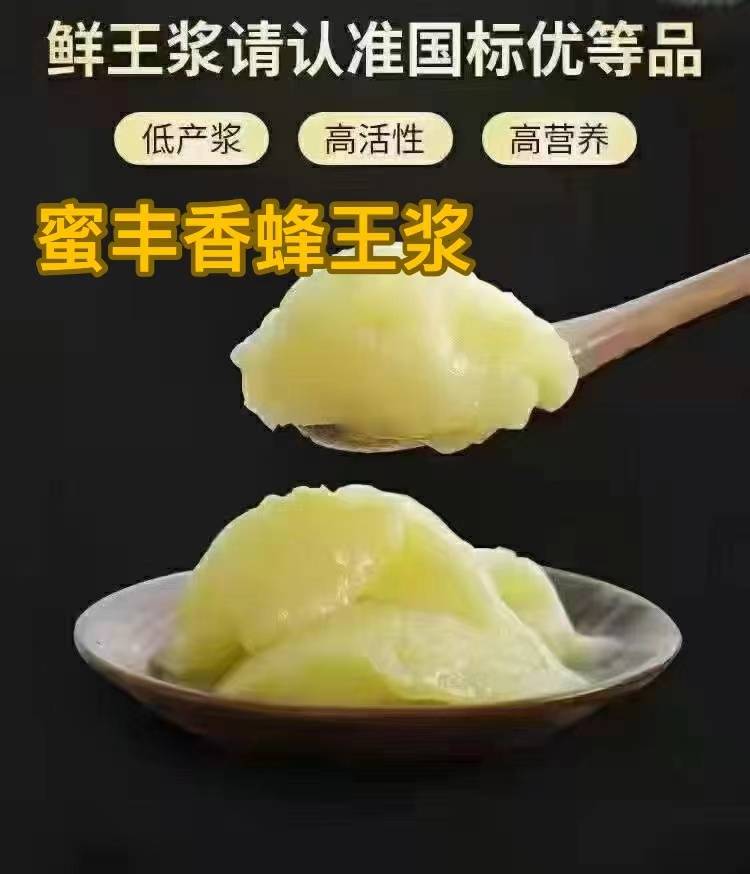When discussing the questions of “Does eating royal jelly in summer cause internal heat?” and “How to deal with internal heat after eating royal jelly?”, we first need to understand the basic properties and effects of royal jelly, and then combine it with the physiological characteristics of the human body in summer and the traditional Chinese medicine theory of internal heat for a comprehensive analysis.
### Basic Properties and Effects of Royal Jelly
Royal jelly, known as “liquid gold,” is a secretion from the hypopharyngeal glands of worker bees, specifically for feeding queen bees and worker bee larvae up to three days old. It is a milky white or light yellow viscous substance. It is rich in various nutrients, including proteins, amino acids, vitamins, minerals, and unique royal jelly acid, all of which have significant health and nourishment effects on the human body. Royal jelly can enhance immunity, promote metabolism, combat aging, and regulate endocrine functions, making it an ideal choice for many health-conscious individuals.
### Does Eating Royal Jelly in Summer Cause Internal Heat?
In traditional Chinese medicine theory, “internal heat” typically refers to an imbalance of yin and yang within the body, with excessive yang or insufficient yin, leading to a series of symptoms such as dry mouth, sore throat, constipation, irritability, and anger. Regarding whether eating royal jelly in summer causes internal heat, there are individual differences. For the majority of people, consuming royal jelly in moderation generally does not directly lead to internal heat. This is because royal jelly is neutral in nature, not overly hot or cold, and its nourishing effects are mild and comprehensive.
However, it should be noted that in summer, the high temperatures can cause the body to sweat easily, leading to rapid loss of water and electrolytes. If one consumes excessive royal jelly or other nourishing products during this time, without paying attention to hydration and diet adjustments, it may indeed increase the body’s burden and indirectly trigger internal heat symptoms. Additionally, certain individuals with specific constitutions, such as those with a yin deficiency and excess heat, may feel discomfort from internal heat more easily when consuming royal jelly in summer.
### What to Do if You Experience Internal Heat After Eating Royal Jelly?
If you experience symptoms of internal heat after consuming royal jelly, there’s no need to worry excessively; you can adjust through the following methods:
1. **Moderately Reduce Intake**: First, you should appropriately reduce the amount of royal jelly consumed, allowing the body time to adapt and adjust.
2. **Increase Water Intake**: Drink more water, especially warm water or light saline water, which helps replenish lost body fluids and electrolytes, alleviating internal heat symptoms.
3. **Adjust Dietary Structure**: Eat more light, easily digestible foods rich in dietary fiber, such as fruits, vegetables, and whole grains, while avoiding spicy, greasy, or irritating foods to reduce gastrointestinal burden and promote detoxification.
4. **Moderate Exercise**: Engaging in appropriate physical exercise can promote blood circulation, accelerate metabolism, and help expel toxins and excess heat from the body, alleviating internal heat symptoms.
5. **Traditional Chinese Medicine Adjustment**: If internal heat symptoms are severe, consider seeking guidance from traditional Chinese medicine for symptomatic treatment using herbal decoctions, acupuncture, or cupping methods for adjustment.
6. **Pay Attention to Rest**: Ensure adequate sleep and avoid staying up late and excessive fatigue, which helps the body regain balance and reduce the occurrence of internal heat.
In summary, royal jelly, as a natural nutritional supplement, generally does not lead to internal heat when consumed in moderation during summer. However, individual differences and improper consumption methods may lead to the appearance of internal heat symptoms. Therefore, when consuming royal jelly, one should reasonably adjust the amount and method based on their constitution and seasonal characteristics, while also maintaining a balanced dietary structure and a healthy lifestyle to achieve optimal health benefits.


